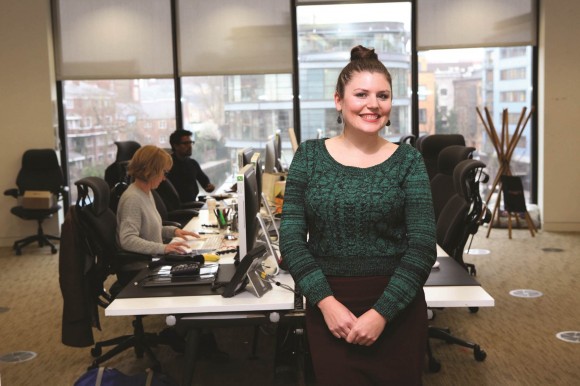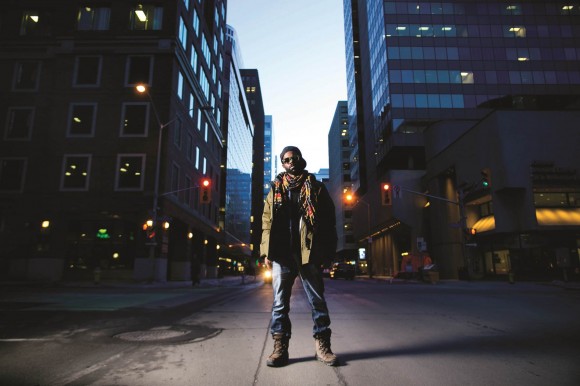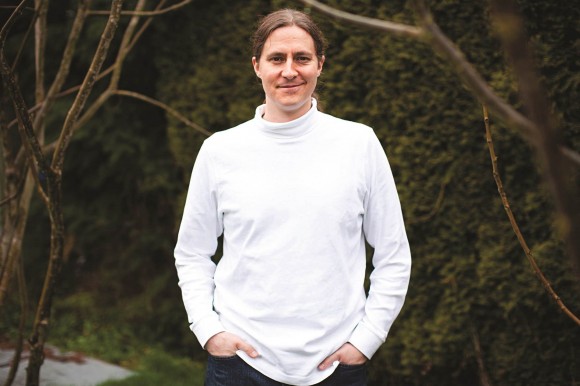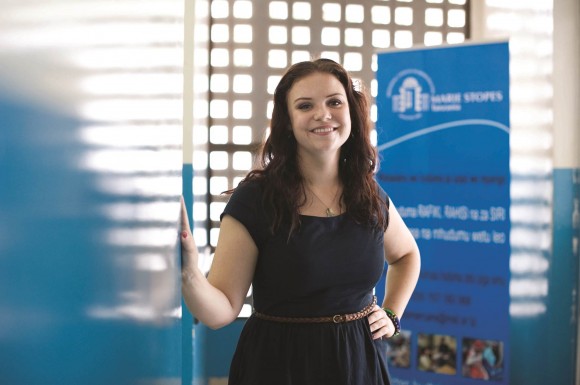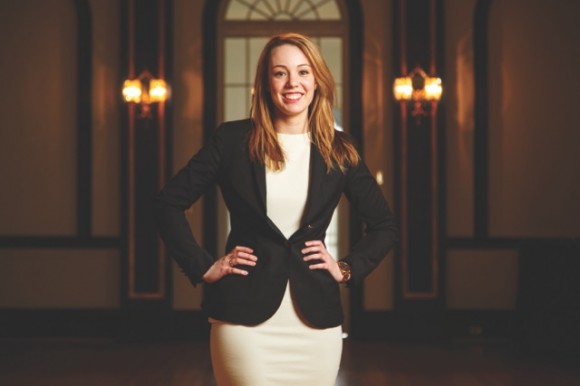By Jennifer Campbell
Is the value of a university degree in decline? The discussion has dominated headlines and conferences, with particular focus on the worth of a Bachelor of Arts degree. Detractors say it’s a direct line to a career as a latte slinger. Its champions laud the BA’s emphasis on critical thinking. Where is the real value? To find some answers, we look at the debate and the career paths of five recent graduates making their way in the world
The value of a liberal arts education isn’t about the facts the student learns but, rather, “the training of the mind to think something that cannot be learned from textbooks.”
That quote comes from Albert Einstein, a man more readily associated with the study of science than the humanities. Though he did study science and made his biggest marks there, he clearly understood that the liberal arts produce creative thinkers—ones who are curious about their surroundings.
More recently, Matthew W. Barrett, former chairman of Bank of Montreal and later Barclay’s Bank, made similar observations. “I used to joke that if you can find me someone who has a degree in figuring out patterns of imagery in Chaucer’s Canterbury Tales, I can teach him to break down a balance sheet in 30 minutes,” he told The Globe and Mail.
“What you want is a mind. A liberal arts education is extremely valuable for someone coming into business because increasingly, business is about context as well as about the technical aspects.”
Indeed. Employers want people who can think—they can be taught anything. But that fact hasn’t stopped some harsh criticism being lobbed at the trusty Bachelor of Arts degree over the past few years. The Globe’s Margaret Wente questioned its value in a column headlined Fries With That BA? The Christian Science Monitor asked whether the bachelor’s degree has become “undervalued, overpriced and beleaguered.”
Many have measured its value in the context of return on investment: if a man starts his BA working as a lawn mower and when he’s done, he goes back to working as a lawn mower, is he better off? Experts such as Martha C. Nussbaum, author of Not for Profit: Why Democracy Needs the Humanities, argue he is because he’s now a thinking person and therefore a more valuable member of society.
“A BA isn’t training for a job—it’s training for life,” says John Osborne, Carleton’s dean of arts and social sciences, invoking what he acknowledges is a cliché, but he says the idea still has merit. “There’s a reason you can’t go directly into law,” Osborne says. “Because they want you to get those transferable skills first.”
Donna Morris, BA/89, says the BA provides a strong foundation for launching a career. She is senior vice president of People and Places at Adobe in San Jose, Calif., and is responsible for a team that hires and develops employees. “I believe a BA provides broad exposure and makes individuals learning-agile—which is critical,” she says.
Osborne says the BA’s bad rap is changing as established professionals highlight its benefits. Carleton has a task force—the University Panel on the Future Development of the BA—that is working on enrolment and retention.
And on the subject of value, there’s no question that BAs make more money in their fields than those without. Those who study social sciences and law at CEGEP or college make less than $50,000 a year on average, while bachelor’s degree graduates in the same subject areas make more than $80,000, according to Statistics Canada. In the humanities, college graduates make about $50,000, while bachelor’s degree graduates make more than $70,000.
There’s also plenty of variety in the jobs that graduates find. Another survey by Statistics Canada broke down the breadth of jobs that history graduates, for example, secured. They included education, business, law, arts and culture, and computer and information systems. Here we look at five BA graduates who prove that learning to think is the degree’s most valuable teaching.
THE WRITER: SARAH LABRECQUE, BAHONS/08, SUSTAINABLE CONTENT COORDINATOR, THE GUARDIAN, UK
Sarah LaBrecque’s journey to becoming a writer and editor for the sustainable business section at the venerable Guardian newspaper may seem circuitous. But on day one of her undergraduate degree at Carleton University in 2003, she told one professor what she eventually wanted to do: be a writer.
The 28-year-old Ottawa native started her undergraduate degree in English but fell in love with environmental studies, partly because of her inspiring professor, Patricia Ballamingie, who, on that first day, asked her students what they wanted to do as a career. LaBrecque blurted out her plan. “What kind of writer?” her professor asked. LaBrecque wasn’t sure.
It would be about 10 years before she finally nailed down what she wanted to write about—sustainability and the environment—but the end game had its beginnings on that day.
“I finally figured out what to write about,” LaBrecque says, laughing, as she finishes her workday at The Guardian.
Her section of TheGuardian is part of what they call “the professional networks,” which includes content centred around professions—such as teaching or health care—and the information those professionals need.
“We’re the leading voice in what’s going on in the business world from a sustainability perspective,” LaBrecque says. “There’s everything from personal finance to water conservation and climate change.”
In November 2013, she began working as content co-ordinator, a job that requires her to commission stories, post sponsored content, research interactive projects, produce Twitter lists and put together photo galleries. She also does some writing and reporting and occasionally moderates live chats on the website.
“We just had one on the water/food/energy nexus and how they intersect,” she says. “We get together a panel of experts, and we’ll have a live online debate. Readers are invited to send in their questions.”
The route to The Guardian began after she completed her degree at Carleton. She initially went to the U.K., where she worked odd jobs. She then returned to her hometown and worked for two NGOs—One Change and Enviro Centre.
At that point, she decided to pursue communications. She had done a minor in mass communications at Carleton and wanted to add to that, so she enrolled in Concordia’s one-year graduate diploma in communications program. It was through this program that she landed the current gig—one of her professors knew her boss at The Guardian and recommended her for the job—which has been a dream come true. She’s now a scribe who writes about her passions.
THE CULTURE HAWK: KWENDE KEFENTSE, BA/11, MUNICIPAL PLANNER, CITY OF OTTAWA
Municipal cultural planner Kwende Kefentse did exactly what Carleton University’s dean of arts and social sciences John Osborne suggests one should do with a BA: explore. He figured out what he wanted “to know about” and then found a way to study exactly that.
He started in the Bachelor of Humanities program, a small interdisciplinary program that presents the history of Western civilization in different subject areas, Iing religions of the world, ancient philosophy, literature/fine arts and, finally, political science and political philosophy.
“You end up reading primary texts instead of books about the books, Ih is great,” Kefentse says.
In his fourth year, he struggled to find a professor to supervise his directed study idea, which was to explore how urban culture and hip hop are connected. In the end, he found a film course called Cinematic Cities, and through that, he was able to crystallize his ideas. He ended up taking architecture and geography classes to finally bring the paper together.
“In the end, probably at my mom’s urging, I combined four years of humanities, film and geography to get my BA,” he says.
The 31-year-old is also a DJ, and in 2005, while he was studying, he was writing for the Ottawa Xpress weekly paper. Through that job, he met writer Richard Florida, an urban studies theorist and now a professor at the University of Toronto. Florida hired Kefentse to write the “creative class exchange” blog for his think-tank.
“Through that, I ended up connecting with someone at city hall, and then they ended up creating this job where I’d work on the renewal of the city’s cultural plan,” he recalls. “I work with the community to develop a strategy for arts, culture and heritage.” He started that, his current job, in 2009.
“All the things I’ve done led to this job that plays to all the strengths I Id in school,” he says. “I didn’t know there was such a thing as a cultural Ir job, an occupation that crossed the aspects I was pursuing academically. To have something there for me that was well tuned to those interests, I think that’s really cool. My BA was unconventional—there were a lot of twists and turns. I knew what I wanted to know about, and I used all the resources at the university to try and put that together for myself. That’s one of the values of the BA—that you can do that.”
THE SCHOLAR: AARON MILLS, BAHONS/05, PHD CANDIDATE, UNIVERSITY OF VICTORIA
Aaron Mills may have been a rare recruit: he didn’t enroll at Carleton University to improve his future employment prospects. Rather, he did so to become a better thinker. It launched him into a lifetime and a career spent doing more of the same.
“I took away a vastly improved capacity for critical and analytic thought. It’s had huge benefits in grad school, law school and, most importantly, my daily life,” says the 33-year-old English literature and philosophy graduate.
After Carleton, Mills took a gap year. He worked briefly for the Competition Bureau before taking four months to backpack through 16 European countries. “That was great for instilling a sense of resourcefulness,” he says with a laugh.
After Europe, it was on to the University of Toronto law school and then Yale University for a one-year Master of Law program. Today, he’s doing a PhD in indigenous legal studies at the University of Victoria as a 2013 Vanier Canada graduate scholar (a $50,000-a-year fellowship). He was recently named a 2014 Trudeau Scholar, which gives him an additional $20,000 for travel and research needs.
“It also offers membership in their community. It’s an amazing forum to test my ideas and refine my arguments,” Mills says.
It was while in Toronto that he became deeply involved in issues of justice for indigenous peoples. He is a member of the Anishinaabe clan through his estranged father but grew up off-reserve with his single mom, a non-indigenous woman. As such, he didn’t think he had any business advocating for indigenous peoples—until a professor encouraged him. He soon started making connections to his own Couchiching First Nation in southern Ontario.
“Now I’m deeply immersed in that cultural tradition in terms of my world view, spiritual practices, values, conception of justice,” he says. “It holds a great deal of meaning to me, and it drives my academic path.”
His doctoral project will show how the Anishinaabe legal order works so that communities that want to adopt it have a resource—a kind of constitution.
“I’m creating it in the belief that the lives of indigenous peoples will be greatly improved if they are able to live under their own systems of law,” he says. “If we’re going to live together in a way that’s based on mutual respect as opposed to colonial domination, the dialogue has to start with our constitutions.”
Mills is clear that the project is about today’s society and the future, but he wants to look to traditions to see if there’s a better way of governing.
THE GLOBETROTTER: ALANA DUNBAR, BAHONS/14, CREATIVE MANAGER, MARIE STOPES TANZANIA
Alana Dunbar met one of her biggest challenges so far when she started her Bachelor of Arts degree at Carleton University.
“My passion is African studies,” the 23-year-old says matter-of-factly from her current home in Tanzania—though she’s not entirely sure why it’s her passion. “I can’t connect it to any one event. I just decided.”
After a false start in journalism, she became part of the first cohort to enroll in Carleton’s African Studies 101. “I didn’t thrive at the beginning. It was the first bad grade I’ve ever had in my whole life, and I think it made me fight harder. From then on, I was completely driven.”
She loved the multidisciplinary aspect of her program, which allowed her to study everything from literature and history to anthropology, race studies and religion.
“Because the [curriculum] is so diverse, you get to connect dots you otherwise wouldn’t see,” she says. “For a lot of students, you might not thrive in certain classes, but you can apply your learning to another course.”
She took full advantage of the course offerings and did an exchange semester in Tanzania, finishing her BA in four and a half years.
When she returned to Canada in September 2013, she yearned for Africa. She discovered the Ontario government’s Global Edge Grant, which would pay to get her anywhere, provided she was working with an entrepreneur on international improvement. She contacted Sarah Scott, an event planner she had previously worked with in Dar es Salaam. “I knew I could learn from her,” Dunbar says.
She wanted to learn how to run events for NGOs and charities, but Scott didn’t have any relevant clients, so they put it on hold—for a week. That’s when Marie Stopes Tanzania, an NGO that encourages family planning, gender advocacy and reproductive health, offered Sarah Scott a one-year contract for a communications campaign. Dunbar was soon back in Tanzania as Scott’s creative project manager. She’ll be there until December unless she decides to enroll in a master’s program in the fall.
“I am torn, because I have two passions: one is gender and reproductive health and the other African literature. I’m still in search of how to combine these two things.”
At this point, she says she’ll definitely do a master’s but can see herself returning to Tanzania. “I’ve laid down some roots here,” she says. Skype and Facetime allow her to stay in touch with her parents, brother and sister in Fergus, Ont.
THE CONSERVATIONIST: HILARY GRANT, BAHONS/12, HERITAGE DESIGNATIONS ADVISER, GOVERNMENT OF SASKATCHEWAN
When Hilary Grant looks at old buildings, she sees stories—stories from the past, stories she wants to preserve.
“My family history is from Trinity Bay, Newfoundland,” she says. “When I was young, I was really struck by the place. I fell in love with its buildings, only later to find out they were built by my family when they first came to Newfoundland. I felt such a powerful connection to them.”
She was equally struck by buildings in her hometown of St. John’s, such as the Anglican cathedral, where, as she puts it, “People were coming together as a community to build these places.” She was almost immediately and irrevocably committed to understanding how one can feel the presence of the past in older buildings, and she wanted to preserve the buildings as a testament to what her ancestors had built. “We look at artifacts in museums all the time, but this idea of stepping into a building—the permanence and its place in the community—really intrigued me.”
So, how to make a career of it? Enter Carleton’s BA in history and theory of architecture, Canada’s only undergraduate degree that allows students to specialize in architectural history. She liked the career possibilities that would open up: urban planning, heritage conservation, architecture, architectural history. “I knew that’s what I loved, and I really didn’t want to have to wait to specialize.”
In just six years since first enrolling at Carleton, she has had a surprising number of jobs. Even during the summers, she had jobs in her field. She worked, for example, as a co-ordinator for Newfoundland’s Doors Open, a festival that gives the public access to otherwise private buildings. She did valuable placements with Parks Canada and the National Capital Commission and worked at the Canadian Register of Historic Places.
After her undergrad, she went to the University of Cambridge to complete her master’s in archaeology, heritage and museum studies. She returned to Canada in 2013 and immediately went to work at her current job, as heritage designations adviser in the Ministry of Parks, Culture and Sport. There, the 24-year-old administers provincial legislation that helps municipalities designate heritage properties. “How can that not be rewarding?” she asks.
The strength of the Carleton BA? The faculty understands you need a complete CV when you graduate. “Your BA is only going to be one line,” she says. “They let students find opportunities that allow them to be unique. They know not everyone who does an arts degree is going to be a professor.” Her current boss told her she was hired, in part, because of her strong work history.
Monday, May 26, 2014 in News Releases
Share: Twitter, Facebook
